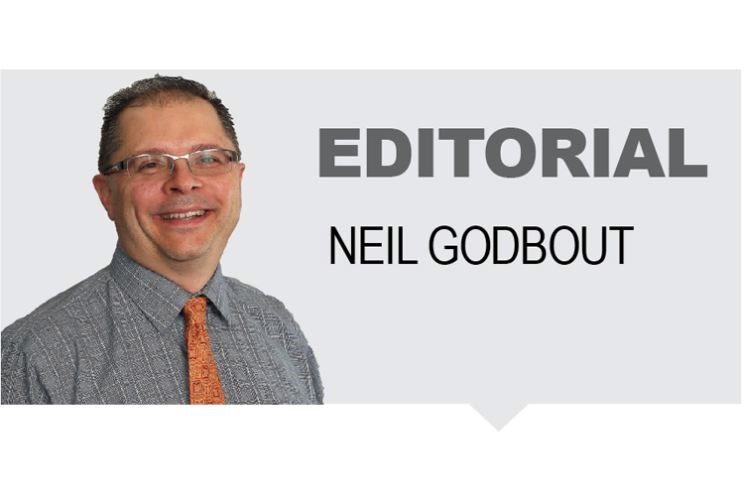A fascinating (but flawed) study was published this week, linking the political views of Americans to the TV shows they watch.
Before there were hundreds of specialty channels, streaming services and YouTube, back in the Stone Age when TV was watched on nearly square low-definition screens from a signal that came in through an antenna on the roof, everyone - both in the U.S. and Canada - watched the same shows, regardless of their politics or where they lived.
The study, Are You What You Watch?, shows those days are long over (with a few notable exceptions) as millions have retreated to political and cultural silos that better reflect their worldview.
The researchers surveyed 3,096 Americans on 37 economic and social issues. Based on their answers, the respondents were placed in one of three buckets that - in Canadian language - would be called conservative, liberal and independent. The liberals were those strongest in favour of abortion, immigration, environmental protections, religious freedom, same-sex marriage and so on. The conservatives were those strongest in favour of gun ownership, traditional views on marriage and gender, the police and the military. Independents held both conservative and liberal views - devoutly religious environmental and racial equality activists, for example.
The study found that the independents watched the most TV, followed by the liberals, with the conservatives consuming much less television than the others. When they did watch TV, however, conservatives leaned heavily towards crime dramas like NCIS, Blue Bloods, CSI and Law & Order, along with light, wholesome fare on networks like Hallmark.
Liberals, meanwhile, lean towards more comedy, favouring the late-night shows, Modern Family and Family Guy.
Independents are all over the TV viewing map, enjoying Duck Dynasty, Dancing With The Stars and other reality-based programming as much as more adventurous adult shows like American Horror Story, Orange Is The New Black and The Walking Dead. They are also the most likely to seek out foreign shows.
There was some overlap, of course, but not much. Just two shows - The Simpsons and The Big Bang Theory - are enjoyed by more than half of the respondents in all three groups. Conservatives love Game of Thrones as much as liberals and independents do but far fewer conservatives watch Game of Thrones compared to the other two groups.
Criminal Minds, Bones, Mythbusters and America's Funniest Home Videos, are enjoyed by members of all of the groups in roughly equal proportion.
The Tonight Show was an interesting outlier. When Jay Leno was the host, conservatives were the most frequent viewers but when Jimmy Fallon took over as host, the show fell out of favour with conservatives but shot up in popularity among liberal watchers.
There are significant issues with surveys, however, from this study to opinion polls to interviews with business leaders like the City of Prince George's Business Insights Report. The most important thing to remember is that what people do (or don't) and what people say they do (or don't) are often different, as the easily accessible data on Google Trends shows. What people tell researchers they're interested in and what they type into search engines are often completely different.
Take gay pornography, for example.
Residents in conservative states are just as likely to ask Google for links to gay pornography as states that vote for more liberal politicians.
On the flip side, take gun laws.
Residents in liberal states are just as likely to ask Google for links to information about gun laws as states that vote for more conservative politicians.
It's results like these that suggest linking personal politics to TV viewing shouldn't be taken as gospel truth. Liberals and conservatives alike will have their guilty pleasures, both in terms of their favourite shows, and in what they tell Google in the privacy of their home.
The independents, who made up 18 per cent of the study, seem to be the most honest in describing their TV likes and dislikes. Not only do they not care about how their choices may look, they're proud of that diversity.
Why can't both Uncle Si and Trevor Noah be funny?
And maybe what we watch says less about us as individuals and political groups and more about what we want when we sit down to watch TV. Our jobs and our home lives might dictate our TV viewing habits as much or more than our politics.
People with stressful jobs and long hours who come home to face financial and health issues may lean towards what they would freely admit is mindless, escapist entertainment.
Conversely, those who enjoy financial and job security, along with a stable home life, may like nothing more than to think deeply while watching hard-hitting news documentaries and weep uncontrollably during depressing medical dramas.
And then there are those who will watch both, depending on their mood that moment.
Perhaps the most interesting finding of the study is that people, whether it's their politics, their TV viewing preferences or both, can't easily be labelled because contradictions are rampant. In other words, we're all far more interesting than what we watch or how we vote.
Now there's some refreshing news.
-- Editor-in-chief Neil Godbout



